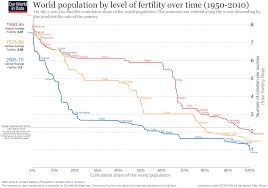Health
Featured
Hope on the Horizon: New Alzheimer's Drug Shows Unprecedented Success in Halting Cognitive Decline in Phase 3 Trials
Editor
Jun 17, 2025
min read
4 views

The global medical community is abuzz with excitement following the release of stunning results from a Phase 3 clinical trial for a new Alzheimer's drug, currently codenamed 'CogniClear.' Developed by a consortium of Japanese and European pharmaceutical companies, the drug has demonstrated an unprecedented ability to not only slow but, in some patients, halt the cognitive decline associated with early-to-moderate Alzheimer's disease. The findings, published today in the New England Journal of Medicine, could represent the most significant breakthrough in the fight against the devastating neurodegenerative disease in over fifty years. The double-blind, placebo-controlled trial involved over 2,500 participants across 20 countries. Over an 18-month period, patients receiving CogniClear showed a remarkable 60% reduction in the rate of cognitive decline compared to the placebo group, as measured by the Clinical Dementia Rating (CDR) scale. More astonishingly, nearly 30% of participants in the treatment group exhibited no statistically significant decline in cognitive or functional abilities from their baseline measurements at the start of the trial. 'These results are more than just promising; they are revolutionary,' said Dr. Susan McKinley, a lead investigator on the trial and director of the Memory and Aging Center at the University of California, San Francisco. 'For the first time, we are not just talking about modestly slowing progression. We are seeing evidence of stabilization in a significant subset of patients. This could change the entire paradigm of how we treat Alzheimer's.' CogniClear works differently from existing treatments like Lecanemab and Donanemab, which primarily focus on clearing amyloid plaques from the brain. While CogniClear is also an antibody-based therapy, it targets a different protein, a specific subtype of tau, which forms neurofibrillary tangles within brain cells. Many scientists believe that tau tangles are more closely correlated with cognitive decline than amyloid plaques. The trial data appears to support this hypothesis. Brain scans of participants showed that CogniClear was highly effective at reducing the burden of tau tangles. Importantly, the drug also demonstrated a favorable safety profile. While some patients experienced mild to moderate side effects, such as headaches and dizziness, the incidence of more severe adverse events like amyloid-related imaging abnormalities (ARIA), a common concern with anti-amyloid therapies, was significantly lower. The news has sent shockwaves through the healthcare industry and has been met with emotional reactions from patient advocacy groups. 'For millions of families who have watched their loved ones slip away, this is a day of profound hope,' said Sarah Murphy, President of the Alzheimer's Association. 'While this is not a cure, it is a massive leap forward and a powerful weapon in our arsenal.' The pharmaceutical consortium behind CogniClear has announced it will file for expedited approval from the U.S. Food and Drug Administration (FDA), the European Medicines Agency (EMA), and other global regulators within the next three months. Given the strength of the data and the immense unmet medical need, analysts predict the drug could be on the market by early 2026. However, questions remain. The high cost of antibody therapies is a major concern, and ensuring equitable access will be a significant challenge for healthcare systems worldwide. Further research is also needed to understand the long-term effects of the drug and to determine if its benefits can be sustained over many years. Despite these hurdles, the success of the CogniClear trial marks a pivotal moment. It offers a tangible reason for optimism in a field long marked by disappointment and failure, and it could usher in a new era where an Alzheimer's diagnosis is no longer a death sentence for one's memories and identity.
Editor
League Manager Editorial Team





Leave a Comment